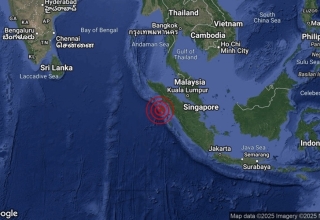
At a turning point, Malaysia is considering BRICS group membership—an alliance including Brazil, Russia, India, China, and South Africa. Tucked down on the Straits of Malacca, Malaysia is quite important in world commerce systems. Crucially for the movement of commerce and energy supplies, this little ocean corridor connects the Pacific and Indian Oceans.
Strategic control by Malaysia over this maritime chokepoint not only increases its geopolitical importance but also supports its role in world energy security by enabling the transportation of essential goods such oil and liquefied natural gas (LNG) from the Middle East to East Asia.
ASEAN Government and Beyond
Malaysia, a major member of the Association of Southeast Asian Nations (ASEAN), wants to strengthen its regional influence by interacting with BRICS. Being a member of BRICS might help Malaysia stand more highly in ASEAN and increase its voice on international venues. By spreading diplomatic activities outside conventional Western allies, Malaysia may negotiate the challenging geopolitical terrain of the Asia-Pacific area with more strategic awareness and confidence.
Negotiating the New World Order
By joining BRICS, Malaysia may help to create a multipolar global order and challenge Western power historical dominance. Aligning with BRICS will help Malaysia promote a world in which many points of view and national interests are valued. By claiming its geopolitical autonomy on the international scene and thereby boosting its worldwide relevance, this association helps Malaysia to demonstrate its sovereignty free from historical colonial influences.
Maximizing BRICS Economic Potential
Together, BRICS countries show great economic strength and account for a sizable portion of world trade and investment flow. Maintaining close links to BRICS allows Malaysia to create fresh economic alliances and boost growth. Enhanced trade networks, more investment flows, and technical interactions are among the possible advantages. By helping domestic development and improving regional connectivity, participation in BRICS projects such the New Development Bank (NDB) might bring Malaysia vital money for infrastructure projects.
Possibilities Difficulties
Malaysia struggles to match BRICS even with the potential geopolitical and financial benefits. Every member state offers different geopolitical policies and economic priorities, which calls for deliberate diplomacy and negotiation to properly balance different interests. Moreover, Malaysia has to negotiate issues related to human rights connected to some BRICS nations while balancing participation in respect of its principles and international commitments. Ensuring that Malaysia’s inclusion into BRICS favorably influences regional stability and promotes global governance depends on managing these complexity.
Malaysia’s consideration of BRICS membership highlights a geopolitical calculation meant to increase its global profile, promote economic growth, and claim sovereignty in a multipolar world. Malaysia’s assessment of the possible advantages and negotiating the difficulties of BRICS calls for a sophisticated diplomatic approach. Malaysia can significantly help to shape the direction of world governance and economic cooperation under the BRICS framework by using its strategic position, increasing regional influence, and deft handling of global complexity.
























